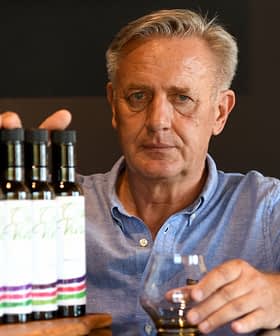Turkish Producers Keep Up Momentum After Strong Results at 2018 NYIOOC
Producers are optimistic about the future of Turkish olive oils after record-breaking wins at the 2018 NYIOOC.
 Award-winning olive oils from Turkey
Award-winning olive oils from TurkeyAmong the many surprises at this year’s NYIOOC World Olive Oil Competition was the record-breaking year enjoyed by Turkish olive oil producers.
Even though there is a lot going on with the policies of the government, we are still very optimistic about carrying Turkish olive oils where it deserves to be in the world.
Turkish producers set records for entries submitted and awards. In fact, in 2018 Turkish producers received as many awards (12) as they did in the previous four editions of the competition combined.
Their success rate of 44 percent this year was also more than double their next best, which was achieved in 2015.
“Turkish olive oil has such a great potential that is still untapped in most of the regions,” Merve Doran, co-owner of Oleamea, told Olive Oil Times.
Oleamea was among the winners at this year’s edition of the competition, bringing home a Gold Award for their organic Gökbel and a Silver for their organic Sogukoluk, both of which are medium Memeciks.
See Also:The best olive oils from Turkey
“We were thrilled knowing that all of our hard work and dedication paid off for both of our products,” Merve said about this year’s win. Oleamea previously won a Gold and Silver for non-organic oils in 2016.
“It is just great when you are awarded for your efforts,” he added. “We worked really hard to deliver a great product for our customers.”
Hilmi Yildrim Olive Oil was also among the winning producers at the 2018 NYIOOC. In their first year at the competition, the family-owned business brought home a Gold for their delicate Memecik. It was the only oil they submitted.
“We, as the fifth generation, have taken the baton from our ancestors and are always trying to move it forwards,” Bozok Alabay told Olive Oil Times. “It is our honor and inspiration to be awarded at this international competition for our efforts.”

Yavuz Arkan accepted the Gold Award for Hermus Olive Oil at the 2018 NYIOOC
He touted the health benefits as well as the taste as the reasons why his delicate Memecik was able to stand out for the judging panel. The native Turkish variety is rich in polyphenols and, when harvested quickly and delicately, this maximizes their concentration in the resulting oil
“We do not use chemicals in our Memecik type olive trees, while olives are green we harvest by hand,” Alabay said. “The Memecik varietals are picked and within four hours, at 20 degrees, the olive oil is obtained by processing in a continuous system olive oil machine.”
Alabay said that Hilmi Yildrim Olive Oil plans to enter the competition again next year with two olive oils. He also hopes for a 100 percent success rate for the second straight year.
Outside of the 2018 NYIOOC, Turkish olive oil have also picked up awards in Italy, China and Japan. Many in the industry believe this could be the beginning of a brighter era for the sector.
“Turkey’s branded olive oil exports tend to be on the rise,” Atilla Totos, a managing board member of Turkish olive oil company, Zeytin Dostu Association, told Chinese state media after an award competition there. “Turkey is one of the fastest-developing high-quality olive oil markets in the world.”
Last year, Turkey produced 287,000 tons of olive oil, making it the fourth largest producer behind Spain, Italy and Greece. Turkey also ranked fourth in olive oil exports with 90,000 tons sent to foreign destinations last year.
According to Totos, quantity should continue to increase. He optimistically expects Turkey to produce about 650,000 tons by the end of the next decade. However, he maintained that while quantity is important, quality is now becoming the main goal of Turkish producers.
In order to achieve these lofty goals, individual producers will have to face short-term challenges. Doran, of Oleamea said that he expects the coming year’s harvest to decrease due to high summer temperatures and hot, dry weather conditions. Devaluation of the Turkish lira, caused by various geopolitical issues outside of the olive oil sector’s control, has also hurt exporters.
In spite of these setbacks, Doran is still optimistic about next year’s NYIOOC, which he plans to enter.
“Our plan is to enter each year with better products. With our local partners, we are constantly searching for new lands to bring different aromas to our olive oil,” he said. “Even though there is a lot going on with the policies of the government, we are still very optimistic about carrying Turkish olive oils where it deserves to be in the world.”








